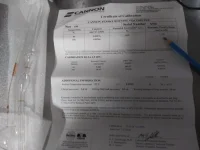How close to the bypass valve setting do most manufactures specify to define the "final net termination" delta-p where testing stops?Most manufacturers will choose a terminal Delta P that is known that will just hit the Delta P inflection point prior to instability. In the case of R and D that Delta P may not be known, thus increasing the window size, lowering or raising the overall efficiency. This unstable section should never be included in reports for any kind of marketing, as it would be misleading.
The info didn't say, but my guess is that R&D data graph by Mann+Hummel was on a filter without a bypass valve. I'd expect the bypass valve on most filters to open before the intense delta-p upturn point at the end of that graph. Although, some of the filters these days have pretty high bypass valve settings (well over 20 PSI).I just realized this is an R and D graph, which makes sense, and that is what we want to see in R and D data.
ZeeOsix I really like your passion for filters! You even read the ISO 4548 standard I love it!
Last edited:

